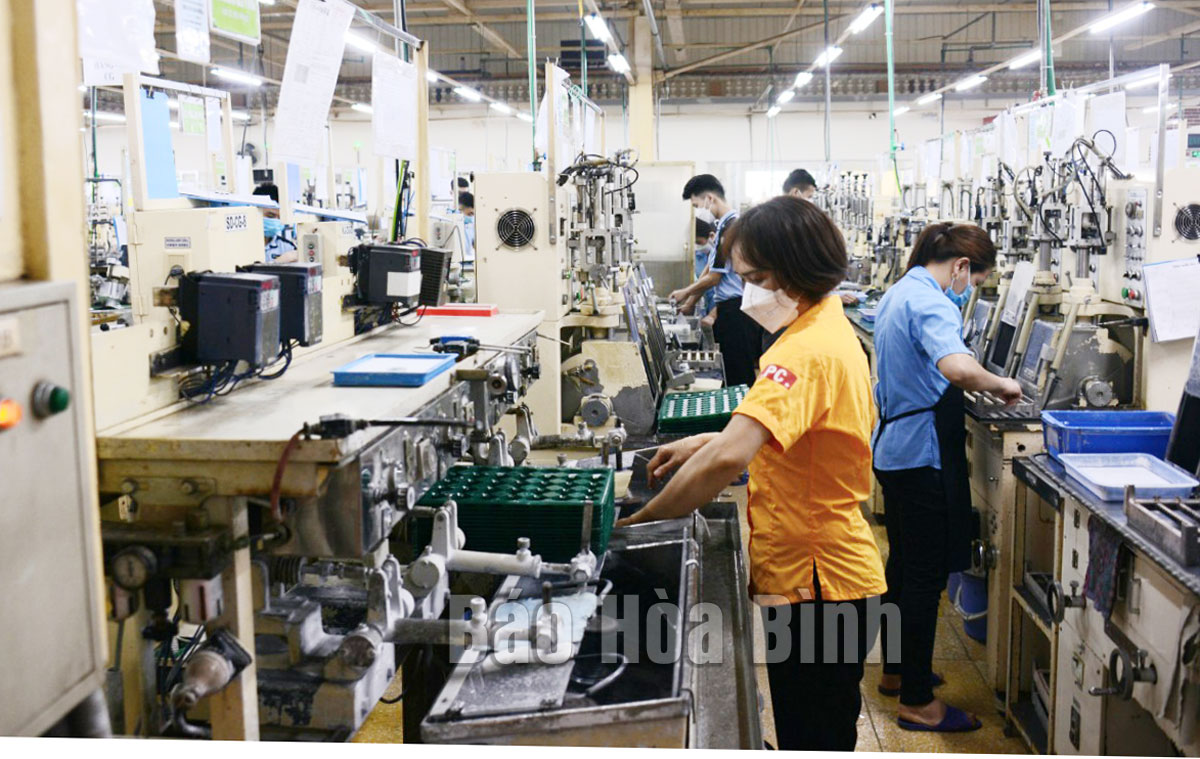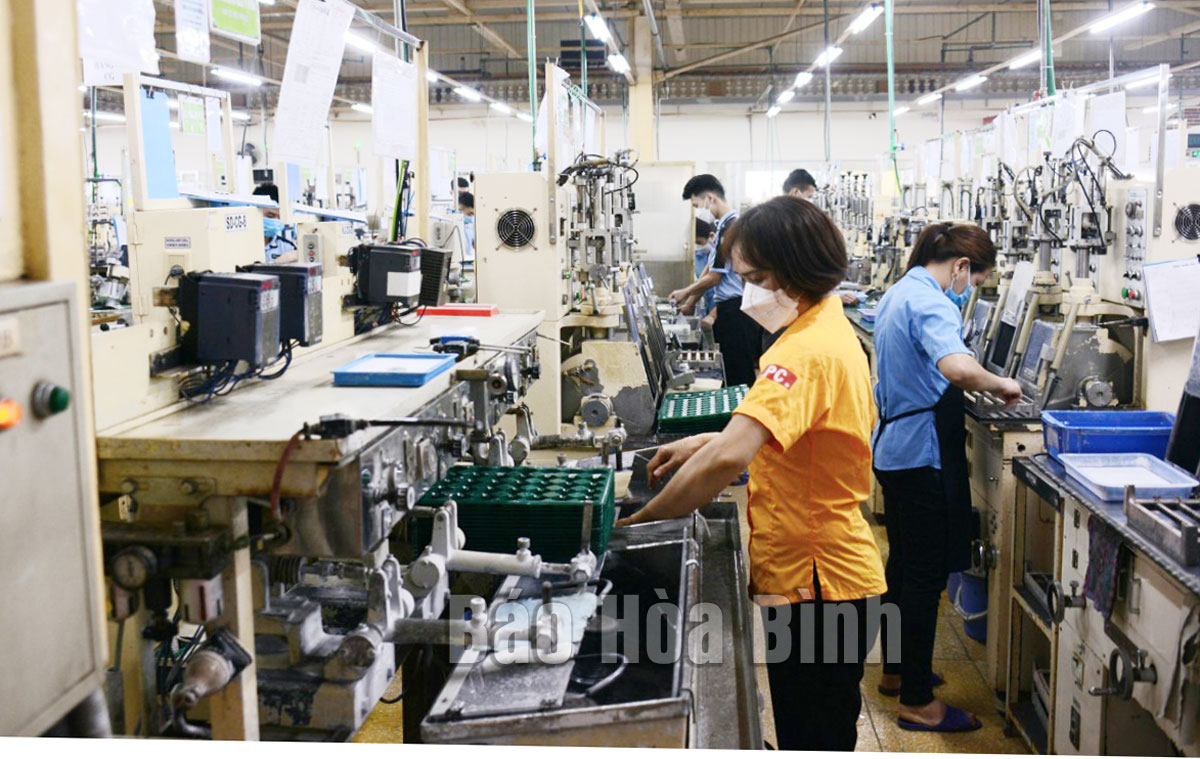
(HBO) – Hoa Binh is one of the localities that have carried out practical activities in external affairs and people-to-people diplomacy, contributing to implementing relevant policies of the Party and the State, according to President of the Vietnam Union of Friendship Organisations (VUFO) Nguyen Phuong Nga.

R Technical Research Vietnam, a wholly-Japanese
invested company, has operated successfully, significantly contributing to the
locality’s export value.
The province has instructed the serious implementation of
the Politburo’s Directive No. 38-CT/TW dated September 9, 2019, regarding the
role and operation of VUFO in the new situation, and Directive No. 12-CT/TW and
Project No. 01-DA/TW dated March 3, 2022, on the Party’s foreign affairs by
2025.
The provincial Union of Friendship Organisations was
established in 2016, with three member organisations – the Vietnam-Laos
Friendship Association, the Vietnam-Germany Friendship Association, and the
Vietnam-Thailand Friendship Association.
The associations have reaped noted achievements in peace,
solidarity and friendship activities and people-to-people cooperation, and
proposed programmes and projects on friendship cooperation between Hoa Binh and
foreign localities.
Hoa Binh counts nearly 800 people living, working and
studying in Thailand, Laos, Taiwan (China), the Republic of Korea (RoK),
Malaysia and a number of European nations.
Nguyen Van Chuong, Vice Chairman of the provincial People’s
Committee and President of the provincial Union of Friendship Organiations,
said Hoa Binh has seen overseas Vietnamese affairs as an important task.
Apart from seeking new relations, Hoa Binh has consolidated
its good friendship with Huaphanh and Luang Prabang provinces of Laos, and
localities of Mongolia and the RoK.
There are 16 foreign non-governmental organisations and
international cooperation agencies in Hoa Binh, and 40 aid programmes and
projects with more than 15 million USD committed.
Such programmes and projects mainly focus on agriculture,
forestry, rural development, education, child protection, health care, clean
water, environment and gender equality, among others.
The province has stepped up the communication work to
popularise policies and guidelines of the Party regarding foreign affairs,
helping international friends understand more about the land and people of
Vietnam. /.
According to data from the Hoa Binh Provincial Party Committee, the industrial production index for the first six months of 2025 is estimated to have increased by 20% compared to the same period last year. This marks the highest year-on-year growth rate for this period since 2020.
In the first six months of 2025, Hoa Binh province’s export turnover was estimated at 1.145 billion USD, marking an 18.11% increase compared to the same period in 2024. Import turnover was estimated at $ 804 million, a 17.15% increase, which helped the province maintain a positive trade balance.
The lives of the ethnic minority farmers in Tan Lac district have gradually improved thanks to the new directions in agricultural production. This is a testament to the collective strength fostered through the professional associations and groups implemented by various levels of the district’s Farmers’ Union.
With the motto the "product quality comes first,” after nearly one year of establishment and operation, Muong village’s Clean Food Agricultural and Commercial Cooperative, located in Cau Hamlet, Hung Son Commune (Kim Boi district), has launched reputable, high-quality agricultural products to the market that are well-received by consumers. The products such as Muong village’s pork sausage, salt-cured chicken, and salt-cured pork hocks have gradually carved out a place in the market and they are on the path to obtaining the OCOP certification.
In the past, the phrase "bumper harvest, rock-bottom prices" was a familiar refrain for Vietnamese farmers engaged in fragmented, small-scale agriculture. But today, a new spirit is emerging across rural areas of Hoa Binh province - one of collaboration, organisation, and collective economic models that provide a stable foundation for production.
Maintaining growing area codes and packing facility codes in accordance with regulations is a mandatory requirement for agricultural products to be eligible for export. Recently, the Department of Agriculture and Environment of Hoa Binh province has intensified technical supervision of designated farming areas and packing facilities to safeguard the "green passport" that enables its products to access international markets.



